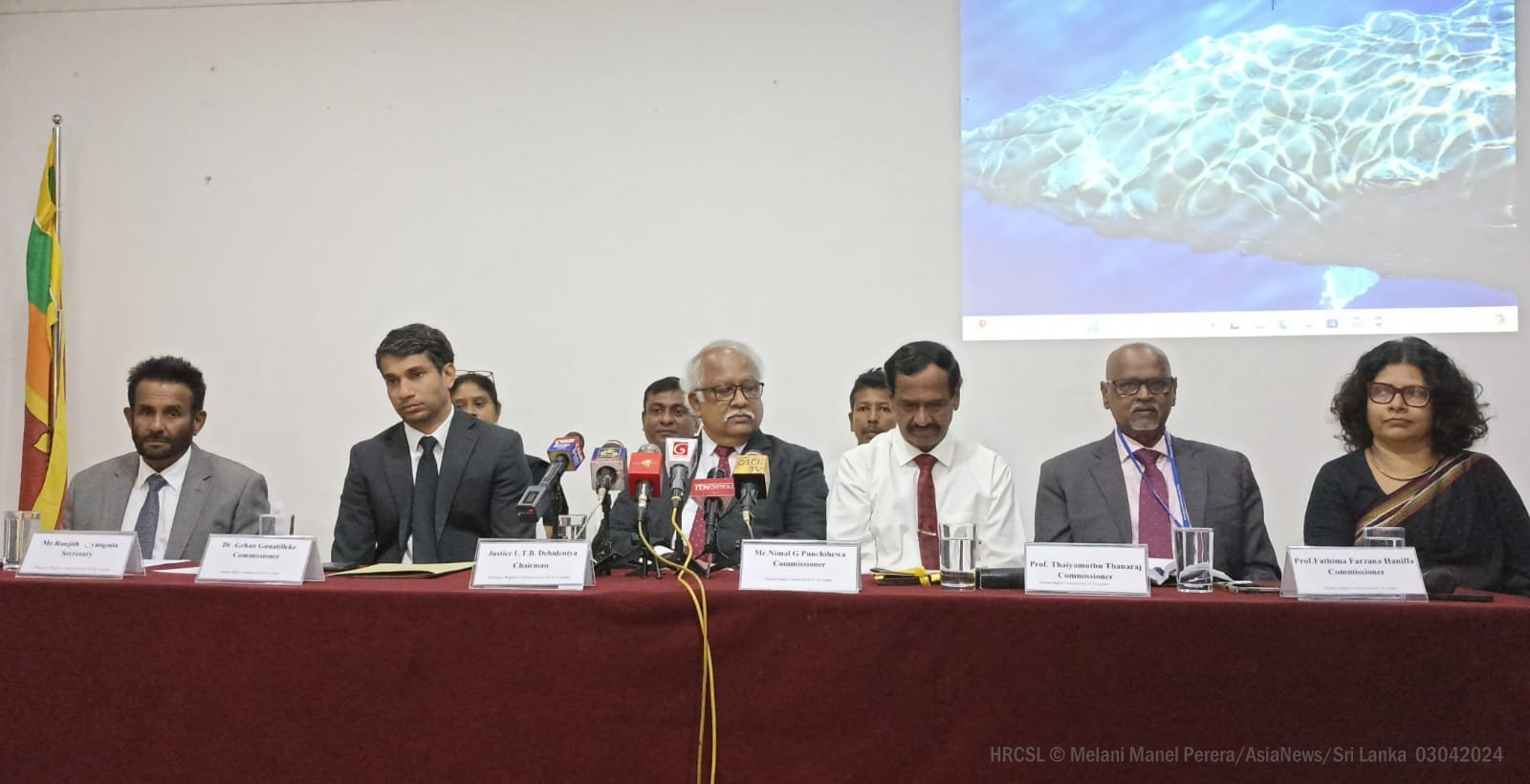Human rights must be included in Sri Lankan school curricula
At a press briefing in Colombo, the country’s Human Rights Commission called for changes to the school curricula to give a central place to human rights, highlighting the plight of marginalised groups, like Tamil plantation workers. Guidelines were presented last December, including on proper arrest procedures. About “24 people taken into custody died in detention,” Commission member Nimal Punchihewa lamented.
Colombo (AsiaNews) – An attempt is underway to include human rights in Sri Lankan school curricula to raise awareness about the rights people have, especially those who belong to minority and marginalised communities, like Tamil plantation workers and LGBTQ+ people.
The issue was the focus of a recent press briefing by the Human Rights Commission of Sri Lanka (HRCSL) at the Sri Lanka Foundation Institute (SLFI) in Colombo.
One of the members of the HRCSL, Prof Thaiyamuthu Thanaraj, said that the Commission is working in synergy with the National Institute for Education (NIE) in a project supported by the Ministry of Education, which has reacted positively to the proposed reforms.
This includes specific human rights training for teachers through school-level sessions organised by the HRCSL.
Although this is not enough to raise awareness in the population at large on the broad issue of rights, Prof Thanaraj insists that it is important to introduce the subject of "human rights" in schools, both for students and teachers.
For its part, the HRCSL is looking at the challenges faced by minority communities and marginalised groups, like Tamil plantation workers. Some 90 per cent still live below the poverty line with a huge gap between their standard of living and that of other groups of workers.
“The Tamil plantation community is an integral part of the Sri Lanka community,” Prof Thanaraj said. “For historical reasons, this community was neglected and because of long years of negligence, their socioeconomic statistics are very low.”
For Prof Thanaraj, “We can't leave this community as they are. We must do some extra work for the community. What we can do is carry out a study.”
The HRCSL is indeed committed to helping them and other vulnerable groups, and “is going to conduct a fact-finding mission." Research is already underway that should provide a complete picture of their conditions and their causes.
“We will go to the community and find out the real problems they face,” Prof Thanaraj added. “We are going to publish the research with the help of the international community and the Sri Lanka government and assist the development of this community. They will become an integral part of Sri Lankan society and be happy.”
The research will be centred on the areas of Rathnapura, Deniyaya and Hatton, but a study has also been announced for Badulla, Kurunegala and Kegalle.
Another Commission member, Prof Fathima Farzana Haniffa, noted that several unpublished reports prepared by the HRCSL about certain controversial incidents and social issues will soon be released for public reference.
One report prepared by the Commission looked at social unrest in Kandy in 2018.
Another Commission member, Nimal Punchihewa, told AsiaNews that HRCSL has prepared guidelines for the relevant departments that deal with the public. The latter include the police, who should follow proper procedures when arresting someone.
“In the last year, 24 people taken into custody died in detention. Similarly, 11 other people died during altercations that occurred during the arrests,” he said.
07/02/2019 17:28
27/07/2018 15:31
24/01/2007







.png)










